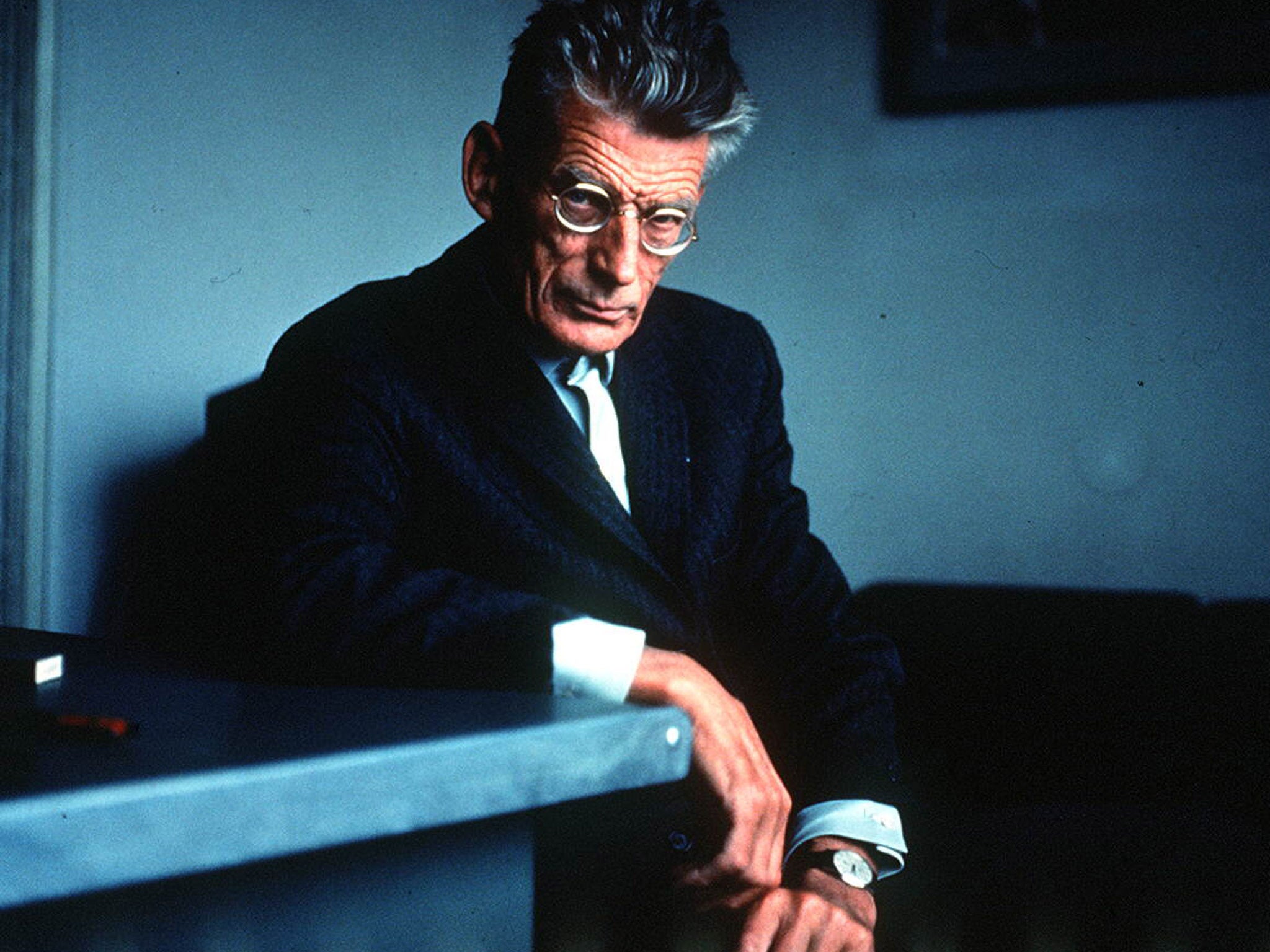The Letters of Samuel Beckett, 1957-1965, book review: Third volume of letters reveals more about the writer than the man
At times, peering into Beckett’s private life can feel improper, yet we are always rescued by so many very fine lines, some so funny, some so human

Volume three of Samuel Beckett’s letters finds Beckett living in his home town, Paris, and coming into the light.
The success of Waiting for Godot is still warm and he faces a world of admirers in new translators, writers, journalists (“the bastards”), actors and directors: “people, people, signatures, smiles, confusion of names”. These are the years when Harold Pinter first meets Beckett and Beckett first meets Buster Keaton, each to their heroes. Beckett marries his partner, Suzanne Deschevaux Dumesnil, and falls for his lifelong confidante to be, Barbara Bray.
The pull of two languages is mirrored by the pull of two private lives. Success has come and there is a lot of socialising done. But for a man writing under the flag of failure, this must also have had the feeling of the brakes being taken away. To counterbalance this, the letters continue to show a very harsh judging of his own work though always with a morbid self-deprecating humour – “Time they buried me” – that can only win empathy from today’s reader.
Beckett in his fifties (b.1906) is getting into the swing of making theatre and these years alone see the birthing of Fin de Partie (Endgame), Krapp’s Last Tape, Happy Days (of Winnie, “opulent blonde, fiftyish, all glowing shoulders and decollete), All That Fall, Embers, Words and Music, Play, Film with Keaton and the novella Comment C’est (How it is) plus “deserts of self-translation”. It’s an extraordinary output.
We have a mini-gold mine of detail revealed by an artist on his own work in pragmatic answers to questions from his favoured directors, Alan Schneider (America), George Devine (Royal Court) and Donald McWhinnie (BBC). The minutiae is exquisite. Not all directors are highly regarded – “I dream sometimes of all German directors… me shooting a bullet into his balls every five minutes till he loses his taste for improving authors”. The only mistake a reader may make amid these long hours of exposure is to assume that we finally get Beckett the man. We are dutifully warned in Dan Gunn’s elegant essay that serves to cushion the Letters that these fruits are wonderfully concentrated with letters chosen to shine light on the work only. This was Beckett’s stipulation and it is meant to make for the best laid down wine. But it also makes for a daguerrotype-type result. To illustrate the point, the closest of his Paris friends are represented, but this is a far cry from the many spoken words between them that are forever lost.
After reading and absorbing this wonderful book, I am surprised that the lasting impact is not so much about the man and his work as the quality of the letter writing itself. At times, peering into Beckett’s private life can feel improper, yet we are always rescued by so many very fine lines, some so funny, some so human – particularly in the letters to Barbara Bray that predominate this volume, and many close to the work itself. “We make the noises we can, that’s all. It’s not possible that people will like it. But it may move them. I aim no lower,” are his words of reward to a sensitive critic.
With the ear of the translator, George Craig points out in his preface that these are spoken sentences. And so this third volume deserves to be heard. It is again a beautifully wrought publication and thanks to its four editors, it has an artistry all of its own.
Beckett’s final seven words of their last featured letter, from 1965 to his friend Tom McGreevy, prompts us to want more “…the best of whatever is to come”. And to that same friend he also writes “let us hear and say what friends like us have to say and hear”. Splinters of joy from some happier days.
Sean Doran is the artistic director of the annual Happy Days Enniskillen International Beckett Festival, which will next take place on 23 July to 3 August 2015
Join our commenting forum
Join thought-provoking conversations, follow other Independent readers and see their replies
Comments